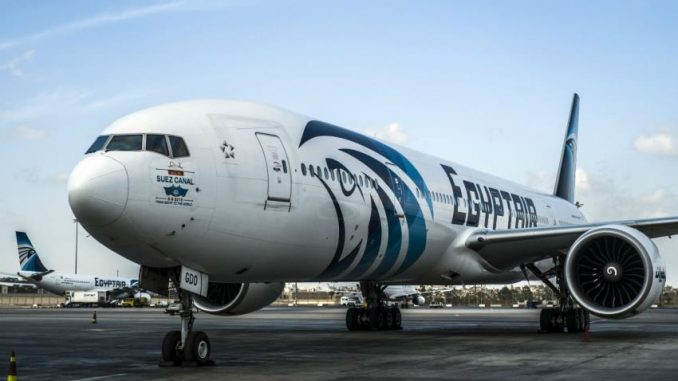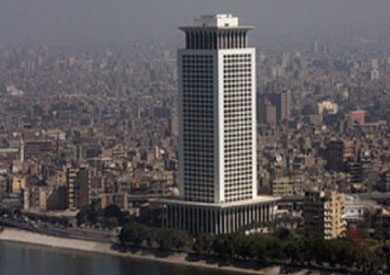
Signs of further deterioration between the former allies have emerged between Saudi Arabia and Egypt as Saudi officials have reportedly requested that Egypt be ruled out of leading the Arab Authority for Civil Aviation (AACA).
Saudi officials made the request to exclude Egypt from the head of position of the pan-Arab aviation regulator last week at a meeting in Oman, according to an Egyptian diplomatic source told The New Arab.
The source, who spoke on the condition of anonymity, said, “The Egyptian government has received word that Saudi Arabia is thinking about withdrawing a deposit, which Riyadh had sent to support Cairo’s currency reserves.”
It is noteworthy that the International Monetary Fund [IMF] approved a $12 billion loan for Egypt in November, just over a week after Cairo floated its currency as part of an economic reform package linked to the loan.
In this context, the Saudi government had sent a $2 billion deposit to Egypt in October to help it secure $6 billion in bilateral financing to seal the IMF deal.
The source said that government of Abdel Fattah al-Sisi was “placing its trust in gaining regional political power” after US President-elect Donald Trump assumes power on January 20 next year.
Last week, Egypt’s al-Sisi delayed a UN vote demanding Israel to stop building settlements on Palestinian land after a phone call from Trump.
The source said,”The Egyptian government is no longer enthusiastic – possibly only temporarily – about reconciling with Saudi Arabia. Riyadh has rejected all its attempts because of its insistence on holding onto Tiran and Sanafir islands.”
Al-Sisi seems to work on strengthening his ties with Trump, Russia and the Syrian regime and refrain from its traditional Gulf ally.
It is noteworthy that Trump has repeatedly said that the US needs to block all oil imports from Saudi Arabia.
Saudi Arabia was a major supporter of the military-backed regime in Egypt following the 2013 coup against Mohamed Morsi, the country’s first freely elected president, and has channeled billions of dollars in support of Egypt’s economy, but ties have cooled between the two countries amid disagreements over Syria.
Since Egypt’s vote on the Russian-backed draft resolution in the United Nations security council,which was opposed by Saudi Arabia, which angered Egypt’s major Gulf backer so much that it described Egypt’s vote as a “painful” stance.
After the voting, the Saudi ambassador to the UN, Abduallah al-Mouallimi said, “It was painful that the Senegalese and Malaysian stance was closer to the Arab’s consensus than the Egyptian delegation.” He also said that he feels pity for these countries that voted for the Russian resolution, stressing that his country will continue backing the Syrian people by all means.
Two days following the voting, Saudi state-owned oil company Aramco announced halting oil product supply to Egypt.
Moreover, a cold war between Egypt and Saudi Arabia has turned toward Africa as a proxy zone in response after Egypt’s divergent stance to the kingdom’s policies.
Saudi Arabia seek to build a military base in Djibouti, but Egypt’s al-Sisi moved to stop the agreement between Saudi Arabia and Djibouti to build a Saudi military base at the entrances of the Gulf of Aden, according to Egyptian diplomatic sources.
Cairo completely rejects this agreement based on the facts that these areas lie in what is considered ‘Egyptian diplomatic influence’, and fall within Egypt’s national security zone as an Egyptian strategic depth in the far south, according to sources.
In the same context, the kingdom also started to take moves toward Ethiopia.
Last week,informed media sources said that Ahmed Al-Khatib, the adviser of Saudi King Salman bin Abdulaziz, paid a visit to the Ethiopian Renaissance Dam within the framework of his current presence in the Ethiopian capital, Addis Ababa, to find out the possibility of renewable energy generation.
The Saudi official visit came days after the visit of the Saudi Minister of Agriculture Abdulrahman bin Abdulmohsen al-Fadhli to Ethiopia.
The visit of the prominent Saudi officials to the Renaissance Dam in Ethiopia raised many questions from the Egyptian part that fears that the dam would negatively affect its water shares from the Nile River.
In response, Egypt has received multiple African leaders, including those of Kenya and Eritrea over the past month, who expressed readiness to boost bilateral cooperation with Egypt.
Moreover, on December 20, Al-Sisi visited Uganda, that didn’t exceed one day, where he discussed with his Ugandan counterpart Yoweri Museveni boosting the water projects between both countries, particularly the maritime project that links between Lake Victoria and the Mediterranean Sea.



